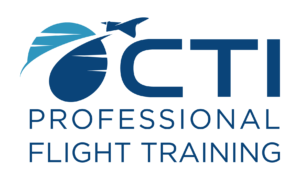Artificial Intelligence and Aviation
The use of AI (artificial intelligence) technology in commercial aviation has already made a major impact on the ways flights are operating today. The world’s leading airliner service providers use AI tools and technology to deliver a more personalized traveling experience to passengers. From AI-powered kiosks to automating airline operations and security check-in, AI’s role in aviation will only grow from here on out. Let’s take a look at the big impacts AI has already made in the aviation world.
Passenger Identification
Checking in before boarding is a critical task for an airline. Leveraging the power of AI check-in has become a lot easier for passengers and airlines. Delta Airlines jumped ahead of the pack in 2017 with its online check-in via Delta mobile app. Almost all major airlines now use AI-powered ticketing kiosks for check-in.
Baggage Screening
Baggage screening is another tedious yet important task airports have to deal with. Now, AI has simplified the process of baggage screening. Osaka Airport in Japan is planning to install the Syntech ONE 200, an AI technology developed to screen baggage for multiple passenger lanes. Syntech ONE 200 is compatible with the X-ray security system significantly increases the probability of identifying potential threats.
Customer Service
AI is being used to assist customers in the airport providing better customer service while at the same time reducing operational costs. Airlines are now using AI technology to help customers resolve issues quickly by getting accurate information about future flights on their internet-enabled devices.
Maintenance Assistance
Major airline companies are implementing AI to predict aircraft maintenance failures and proactively preventing them. Airbus, for example, is using a cloud-based data storing system that helps fleets collect and record a massive amount of real-time data. Using AI, they run analytics and determine when aircraft maintenance should be performed.
Cons of Using AI
Despite the promise of AI for the aviation industry, there are some concerns. For example, it takes time for implementation and it cannot completely replace human to human customer service interactions. AI is also expensive. If an airline company wants to deploy a chatbot, it will need to invest more than $15,000.
AI is also not 100% failproof. Recently an Ethiopian Airlines Boeing 737 crashed a few minutes after it took off from the capital city. The failure of the MCAC system was the main factor behind the fatal accident.
Ready to Start a Career in Aviation?
If you’re ready to get your wings choosing a qualified flight school makes all the difference in ease of learning, time to complete your courses, and money spent. Come visit our Florida campus or Tennessee campus. You can request a tour and see all that CTI has to offer our students.
